
views
- The stages of narcissistic abuse include idealization, devaluation, repetition of the first two stages, and discarding.
- The narcissistic abuser might “hoover” you after the relationship ends, trying to “suck” you back into their toxic cycle.
- To break free from the cycle, set firm boundaries, seek help from a friend or therapist, and try to resist soothing the narcissist’s emotions.
Narcissistic Abuse Cycle Stages

Idealization In the “appreciation,” “honeymoon,” or “idealization” stage, the narcissist might “love bomb” you, or emotionally manipulate you using attention or compliments, to create a sense of instant connection, put you on a pedestal, and make you feel perfect. In a romantic relationship, they might discuss marriage early on, give you gifts, plan elaborate dates, or create lots of grand gestures. They might also have a sense of ownership over you and the relationship and use controlling tactics like guilting you for spending time with other people, crossing your boundaries, isolating you from other people, or moving quickly into intimacy. In a friendship, they might praise you, spend a lot of time with you, and depend on you for things like transportation, entertainment, etc. If you have a narcissistic boss, they might give you the impression that you’re their dream employee and that no one else is as good at the job as you are. They also might hint at raises and promotions that never seem to actually happen.

Devaluation The devaluation stage might begin slowly, with the narcissist dropping subtle hints that you’ve done something wrong or hurt their feelings. They tend to remove you from their pedestal and put you down. This can be hurtful or confusing, and you may struggle to understand what you did wrong. Other behaviors associated with this stage include: Passive aggressiveness Attempting to change you Backhanded compliments Poor or lack of communication Subtle, increasing criticisms Excusing for their poor behavior Stonewalling, or giving you the silent treatment Mind games that seem harmless at first Increasing name-calling, insults, and verbal abuse Lack of empathy and validation for you Comparing you to other people (or narcissistic triangulation) Withholding physical, emotional, and sexual intimacy Ridicule and humiliation Gaslighting, or manipulating you to doubt your own understanding of events or experiences Physical threats Physical or emotional abuse Increasing violation of your boundaries Acting as the victim when confronted
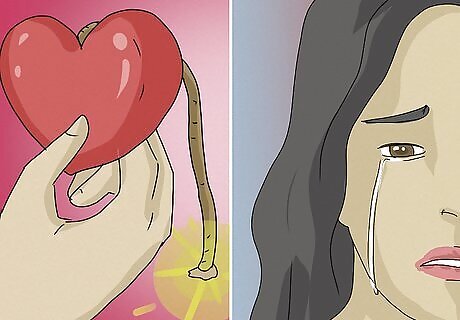
Repetition After the devaluation stage, you might feel depressed, stressed, confused, and/or scared of losing your relationship. You might try harder to please them or pull away completely to protect yourself, which can make them feel hurt and enraged. This can lead them to either lovebomb you and start the cycle again, or leave you completely. Your relationship might not follow this cycle exactly—you might repeat only a couple of the stages and there may be bumps, stops and starts, or detours along the way.
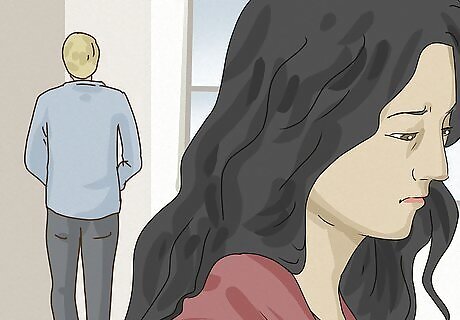
Discarding They might “discard” you, or suddenly leave the relationship, once they have no other use for you. This can leave you feeling confused and hurt, especially if they place all the blame and the downfall of the relationship on you. During this stage, your partner might also betray or cheat on you, ghost you, invalidate your emotions, or play the victim.

Hoovering The “Hoovering” stage, named after the vacuum, might happen after the relationship ends. They might try to “suck” you back into the relationship and the cycle of abuse by reaching out, being overly charming, or love-bombing you again. This can be extremely confusing and difficult, especially if you still have feelings for your ex. It’s important to remember that they are most likely doing this because they want something from you—once they get it, they’ll eventually move on to the next victim.
Mental Health Effects of the Narcissistic Abuse Cycle

Victims of narcissistic abuse might struggle with mental health issues. After the relationship ends and you break free from the cycle, you may experience shame, guilt, anger, fear, or issues with your sleep, diet, or hygiene. If the abuse goes on long enough, it can increase the likelihood of mental health conditions such as: Anxiety Depression Dissociation PTSD
Coping and Breaking Free from a Cycle of Narcissistic Abuse
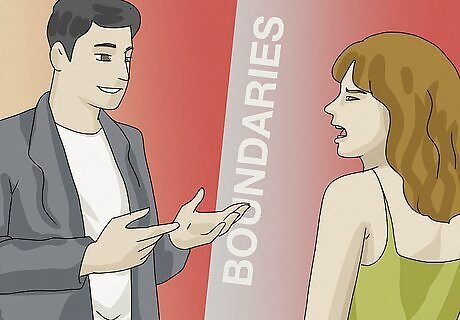
Set firm boundaries with the narcissist. If you’re in an abusive relationship with a narcissist that you can’t easily break free from, try to establish healthy boundaries. Start small by saying “no” when you don’t want to do something or asking for time alone when you need it. Understand that they may try and test your limits. If they do, be ready to reinforce your boundaries or walk away completely. Try not to be financially dependent on the narcissist if you’re dating—having your own money can be helpful when you’re getting ready to leave the relationship.

Seek help from loved ones and close friends. During the relationship, your partner may try to drive a wedge between you and your loved ones or isolate you from them. Try to keep in touch with the ones you love—they can help you figure out what’s real and see what your relationship looks like from an objective lens. You can also seek therapy. A therapist can help you sort through what’s real and what’s not, and give you advice on how to cope after the relationship ends.

Maintain a record of your communication. If you have to talk to the person, communicate by text or email, and take screenshots of your interactions. Keeping records of your texts can help you feel sane if the person tries to gaslight you or present an alternative version of events. Maintaining a record may also be helpful if the relationship escalates and you decide to file a domestic violence claim or a get restraining order against your abuser.
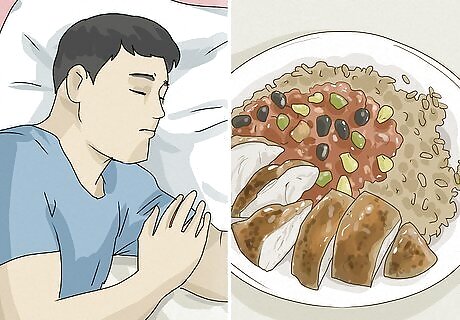
Be kind to yourself. You’re not to blame for the relationship, and being in a toxic situation can take a huge toll on your mental and emotional health. Whether you’re still in the relationship or you’ve ended things, practice self-care to meet your physical and emotional needs. Try focusing on: Getting enough sleep Eating a healthy diet Engaging in activities you enjoy Spending time with positive friends and other people in your life Doing physical activity each day Practicing meditation, yoga, or other mindfulness relaxation techniques

Try to leave the relationship if possible. Narcissistic abuse cycles can be incredibly harmful, so consider escaping from the relationship, especially if you’re dating or friends with the abuser. Once you’ve separated yourself from them, consider going no-contact to avoid being “hoovered” back into the cycle. When breaking up or ending the relationship, try to use “I” statements instead of describing why they aren’t a good partner. For example, say “I feel like this relationship isn’t working for me,” or “I feel like I would be happier if we went our separate ways.” Even if they tempt you with compliments or grand gestures, try not to give in. Instead, fill your life with other positive people you love and trust. If you’re in danger, seek help immediately. Call the National Domestic Violence Hotline at 1-800-799-SAFE (7233) or text START to 88788. If it’s an emergency, call the police.

Give your future relationships time to grow. If you’ve been in a narcissistic abuse cycle for a long time, it may be difficult to tell the difference between love bombing and love. Love develops slowly over time, while love bombing might bulldoze over your boundaries and often feels too good to be true. Trust your gut, and try to have regular check-ins about your relationship with your new partner. You can also ask your family or friends to give you a fresh perspective and tell you if this new person you’re seeing is love-bombing you or not.














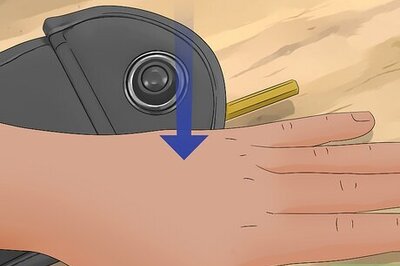

Comments
0 comment